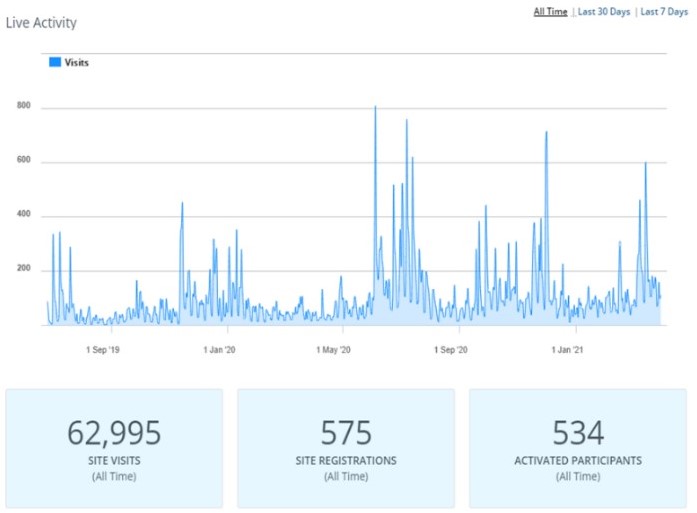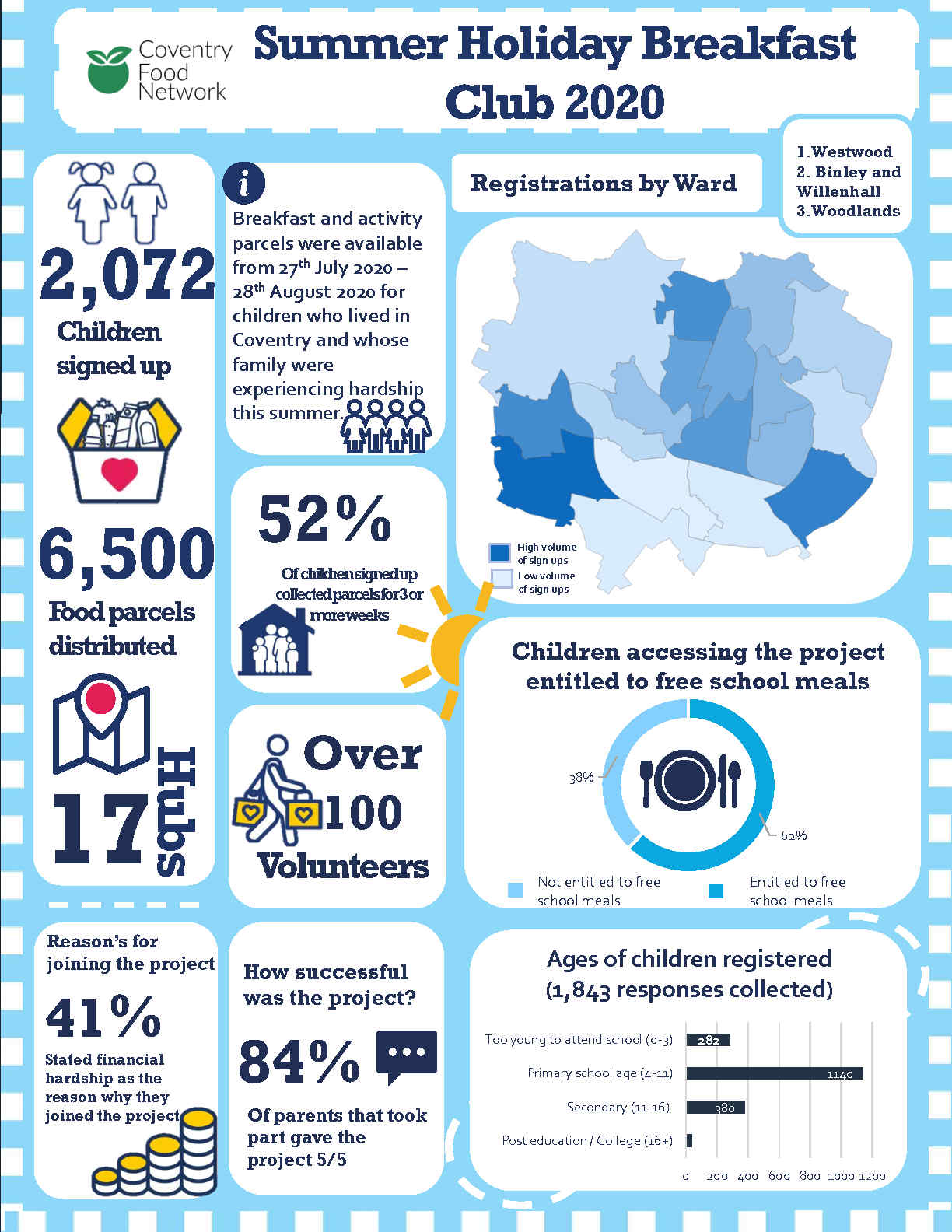Active communities & empowered citizens
Engaging local communities
The Council’s engagement platform “Let’s Talk Coventry” enabled the Council to generate better connectivity and collaboration amongst local communities. This has been particularly useful in gaining insights from the public throughout the Covid-19 pandemic and subsequent lockdowns.
Let’s Talk Coventry has also been used to inform residents about the availability of Covid-19 community testing and vaccinations as well as uncovering barriers to the uptake of testing and vaccinations. The findings have had a direct impact on the messaging and communications channels we have used throughout the pandemic.
The platform has improved our online engagement offer using a variety of deliberative tools as well as surveys. The graph below shows the increase in engagement with the platform.
Keeping residents informed about the pandemic
In order to ensure residents were informed and kept up to date with information regarding the Covid-19 pandemic we delivered 81,000 leaflets city wide encouraging residents to use their local testing centres. The leaflets were also used in mosques, churches, food banks, in local shops, and trade suppliers.
Radio adverts were also used to advertise information and enable access for a range of audiences in a variety of languages.
Use of social media has been an excellent way in transmitting facts and information to large audiences. Coventry City Council’s social media alongside targeted posting to specific groups has enabled us to stay in touch and keep residents informed.
One of the most successful ways in which we engaged citizens was through videos alleviating some of the fear’s residents may feel when going for a lateral flow test and to dispel some of the misconceptions about the testing process. Several videos were made in different languages and promoted through informal channels such as WhatsApp groups as well as our formal social media channels.
A food resilient city where no one goes hungry
Coventry Food Network is a newly formed local multi-agency food partnership involving statutory, voluntary, and private organisations across sectors and researchers from the two Universities in the City. It has evolved from the work carried out by Feeding Coventry, a registered charity set up in 2016 with a vision to make Coventry a “food resilient city where no one goes hungry”.
The Coventry Food Network and Feeding Coventry responded to the pandemic by distributing emergency food supplies to those in food crisis and witnessed a dramatic shift from food bank centred distribution to ‘food hubs’, social supermarkets and other community provision. A great deal of work has been done to co-ordinate the provision of emergency food and ensure no-one in Coventry goes hungry because of the pandemic.
Last summer, the Coventry Food Network and Feeding Coventry worked together to provide breakfast and activity packs to any family that found the prolonged closure of schools during the holidays particularly difficult.
The infographic below outlines some of the achievements over the summer:
Meeting the public sector equality duty
Over the past year, the Council has continued to demonstrate its commitment to both the public sector equality duty and the growth of its agenda on equality, diversity, and inclusion more widely. A new set of equality objectives were launched in April 2020 as part of our focus to prioritise and deliver on clearly defined equalities outcomes. Also, a comprehensive programme of equality impact assessments (EIAs) was carried out to assess the potential equality impact of the coronavirus pandemic in relation to the schools, Council services and the Council workforce. These service EIAs were collated, analysed, and used to develop an over-arching EIA for the organisation in respect of the local impact of Covid-19. The results of this EIA showed that people belonging to an ethnic minority group and disabled people have been most disproportionately impacted. The information contained in the Council’s Covid-19 EIA has been used to inform policy development and decision-making both within the organisation and through our partnership work in the city.





